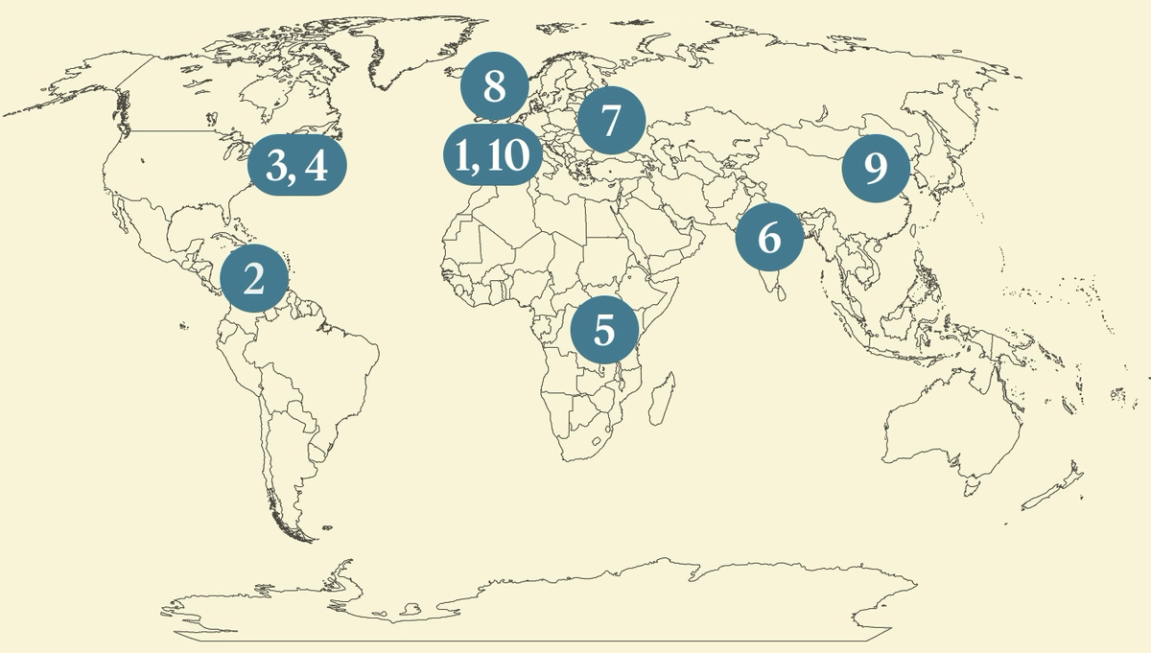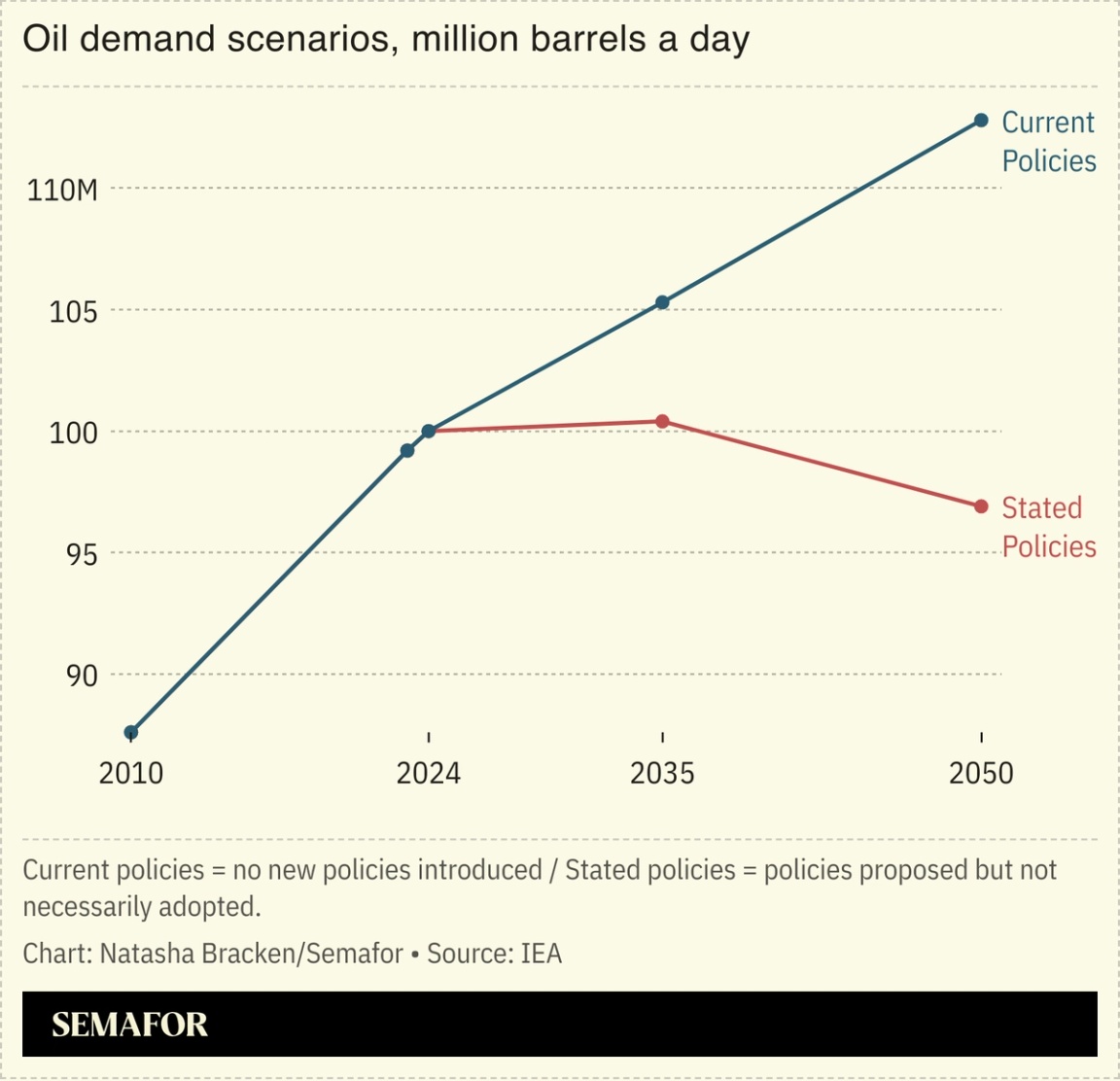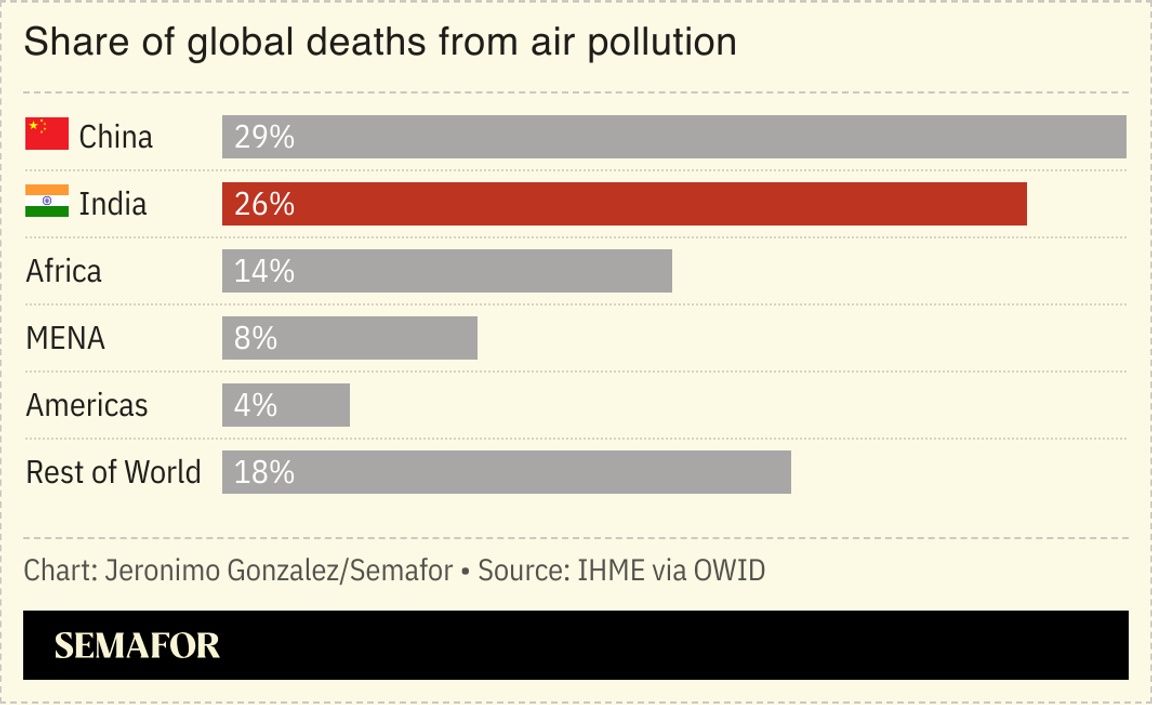| | US lawmakers are poised to end the shutdown, the IEA projects fossil fuel use to peak by 2030, and g͏ ͏ ͏ ͏ ͏ ͏ |
| |  | Flagship |  |
| |
|
The World Today |  - Fossil fuels’ 2030 peak
- US strikes alienate allies
- New US trade deals
- US shutdown end nears
- Pan-Africa health regulator
- Delhi pollution hits schools
- Kyiv energy corruption
- UK’s Starmer under fire
- China crypto scammer jailed
- Wine production grows
 Margaret Atwood ventures into memoir. |
|
IEA says fossil fuels could peak in 2030 |
 Despite increased political support for fossil fuels, their use could peak by 2030, an International Energy Agency report said. The annual World Energy Outlook, which coincides with the COP30 climate summit in Brazil, said that coal use is at or close to a peak, while oil and gas will follow in the next 10 years and nuclear, solar, and wind will all surge. The peak has been delayed from earlier projections, mainly thanks to shifting US priorities. The forecast assumes that the world’s governments will stick to their stated climate policies; if they abandon those goals, the peak would be later and warming would be faster. But the IEA said that it expected change to continue. |
|
US allies cut intelligence sharing |
 NTB/Lise Aserud via Reuters NTB/Lise Aserud via ReutersUS strikes against alleged drug traffickers in South America are putting key global security alliances at risk. Colombia — where most US-bound cocaine is produced — said it would stop sharing intelligence with Washington over what Bogotá called human rights abuses against “the Caribbean people.” The UK too said it would pause some intelligence sharing with the US over the strikes, and France warned that the buildup risked violating international law. Critics, including Republican members of Congress, say the attacks, which have killed dozens, are illegal. Despite the diplomatic ruptures, Washington, which sent its largest aircraft carrier to the Caribbean, said it is committed to its “armed conflict” with traffickers in South America. |
|
New deals lower US trade tensions |
|
Post-shutdown path remains murky |
 Annabelle Gordon/Reuters Annabelle Gordon/ReutersUS lawmakers appear poised to end a record-breaking government shutdown today, but their path forward is fraught with division. US stock futures rose as investors bet that the House of Representatives will approve a deal ending the row, but both Democrats and Republicans appear gripped by internecine battles. Democrats are calling for senior leadership to resign over what critics labeled a capitulation. House and Senate Republicans, meanwhile, have yet to agree on the prospect of a vote on a key health care issue that was the party’s central concession in order to win Democratic approval for a compromise — a gulf that Semafor’s politics team said signals “just how elusive a post-shutdown deal could prove.” |
|
Africa gets first medical regulator |
 Marvellous Durowaiye/Reuters Marvellous Durowaiye/ReutersAfrica’s first continent-wide medical regulator launched, part of wide-ranging efforts to build up local pharmaceutical capacity and reduce dependence on foreign agencies and companies. Africa lacks effective medical regulation: Only nine out of 55 African Union countries have regulatory systems that meet WHO standards, Nature reported. The African Medicines Agency will ensure that once a treatment is approved in one African country, it can be recognized across others, and aims to boost research: Only 3% of clinical trials take place in Africa, meaning that treatments may not be effective for African populations. Boosting the continent’s medical and research self-sufficiency is a key development goal: South Africa this week began trials of the first locally developed vaccine in 50 years. |
|
Delhi schools grapple with pollution |
 New Delhi told schools to run some classes online amid worsening air pollution. Levels of PM2.5 — fine particulate matter that can clog the lungs — reached 438 in recent days, almost 30 times higher than the World Health Organization’s safe limit, and about eight times India’s national average. While India’s capital has made moves to improve its air quality, including restricting non-essential construction and pausing industrial activity, crop burning and rapid population growth have driven pollution. Poor air quality has a massive human toll: In 2021, the latest year for which data is available, India accounted for more than one in four global deaths from pollution. |
|
Ukraine corruption crackdown |
 Vyacheslav Madiyevskyy/Reuters Vyacheslav Madiyevskyy/ReutersUkrainian authorities suspended the country’s justice minister in connection to an energy-related corruption crackdown that has underscored the vulnerability of the sector. Officials have also charged seven people over what they allege is a $100 million kickback and money laundering scheme, part of efforts to address EU concerns over graft in Ukraine. Yet the latest moves also spotlight the myriad issues facing the country’s energy system, which over the weekend was once again subjected to intense aerial attacks by Russia ahead of winter in an effort to trigger heating outages: Moscow has hit Ukrainian energy infrastructure nine times in the past two months. |
|
 News, but only the good stuff. Cue Nice News, an easy-to-read daily digest that delivers uplifting, interesting, and intelligent stories. Join over 1.1 million other readers who wake up with a more optimistic mindset — subscribe to Nice News for free. |
|
 Dado Ruvic/File photo/Reuters Dado Ruvic/File photo/ReutersA Chinese woman who oversaw a $6.5 billion crypto scam has been jailed for 11 years in the UK. Qian Zhimin bought bitcoin using funds stolen from 120,000 Chinese people, mainly pensioners, before fleeing China for a London mansion in 2017. Cryptocurrency appears to lend itself to scams, with its get-rich-quick ethos and its position outside the regulatory reach of most governments. Last month, the US government charged another Chinese man with running a fraudulent crypto scheme out of Cambodia, involving the theft of at least $14 billion from people all over the world, while the Bulgarian “Missing Cryptoqueen” Ruja Ignatova, wanted by the FBI for stealing $4.5 billion with a fake cryptocurrency, has not been seen since 2017. |
|
|